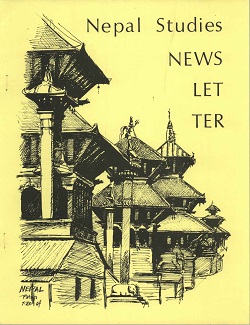Author Biography
Dungkar Lobzang Trinlé (1927–1997) was an outstanding Buddhist scholar, a Marxist historian, an expert on traditional poetics and a campaigner for modern Tibetan education and cultural development, a rare polymath among Tibetan scholars of the 20th century. His contributions to and legacy within the fields of Tibetan studies and Tibetan education are recognized internationally despite having to work according to the vicissitudes of the political climate in China and the Communist Party’s policies towards Tibet as a ‘liberated’ part of the Motherland.
Born in Kongpo Nyingtri in southern Tibet in 1927, he was recognised as a Tulku or incarnate lama at the age of four. At nine, he joined Sera monastery and went on to obtain the Geshe Lharampa degree, the highest academic qualification. Before 1959, he was deputed to teach at the nascent Nationalities Institute in Beijing where he studied Mandarin and absorbed the modern and specifically Marxist approaches to study.
During the Cultural Revolution (1966-76), he was detailed to work on a labor farm in Toelung Dechen near Lhasa. However, after the Cultural Revolution he went on to occupy all the leading positions available to Tibetan academics including: Vice-Principal and Professor of Tibet University, Honorary President of the Tibet Academy of Social Sciences, Professor at the Central Institute of Nationalities in Beijing, and Vice-President of the Chinese Institute of Tibetology in Beijing. His political rewards included membership in the Chinese People’s Political Consultative Conference and the council of the Chinese Buddhist Association. His intellectual skills were recognised officially in 1987 when he was awarded the title of ‘State-level Expert with Outstanding Contributions to Science.’
His major Tibetan-language publications include: The Merging of Religious and Secular Rule in Tibet (Bod kyi chos srid zung ‘bre lam lugs skor bshad pa), The Annotated Red Annals (Deb ther dmar po’i mchan ‘grel), A List of Rare Tibetan Books (Bod kyi dkar chag rig pa), An Introduction to the History of the Potala and the Jokhang (Po ta la dang Jo khang gi lo rgyus), A Dictionary of Han-Tibetan History (Rgya bod lo rgyus dang ‘Drel ba’i tshig mdzod), and The History of Struggles Among Various Religious Sects in Tibet (Grub mtha’i skor gyi rnam bshad), the Dungkar Encyclopaedia (Dung dkar tshig mdzod chen mo), as well as important works on Tibetan poetics and on modern education.
After 1992, when Deng Xiaoping signalled an end to the ‘special characteristics’ privileges which allowed Tibetans to argue for a significant degree of cultural and economic autonomy, his standing suffered. Dungkar saw the new policy as aiming at full assimilation of Tibet’s economy and culture with China, and as jeopardising the successful cultural reconstruction achieved during the previous fifteen years by Tibetan educationalists and moderate Chinese to repair the damage of the Cultural Revolution.
Though some Tibetans will remember Dungkar as a collaborator, for those who knew him better (colleagues, students, and readers) he was a realist who did his best to safeguard Tibetan identity and culture within the new sociopolitical framework of the People’s Republic of China. He died in Los Angeles on 21 July 1997, with a clear conscience, having made a lasting contribution to the renaissance of Tibetan language, culture and Tibetan studies.
This translation contributes to the growing body of research available in English on the Tibetan art of printing and textual dissemination of Buddhist canons and their commentaries as part of cultural, literary and religious history of Tibet.
Tsering D. Gonkatsang teaches Tibetan at the Oriental Institute, University of Oxford, and is a translator and consultant for Tibet-related radio programs and films. He is a Trustee of Tibet Foundation, UK and Tibet Watch, and can be contacted at tsering.gonkatsang@orinst.ox.ac.uk.
Creative Commons License

This work is licensed under a Creative Commons Attribution 4.0 License.
Recommended Citation
Trinlé, Dungkar Lobzang and Gonkatsang, Tsering Dhundup. 2016. Tibetan Woodblock Printing: An Ancient Art and Craft. HIMALAYA 36(1).
Available at:
https://digitalcommons.macalester.edu/himalaya/vol36/iss1/17


